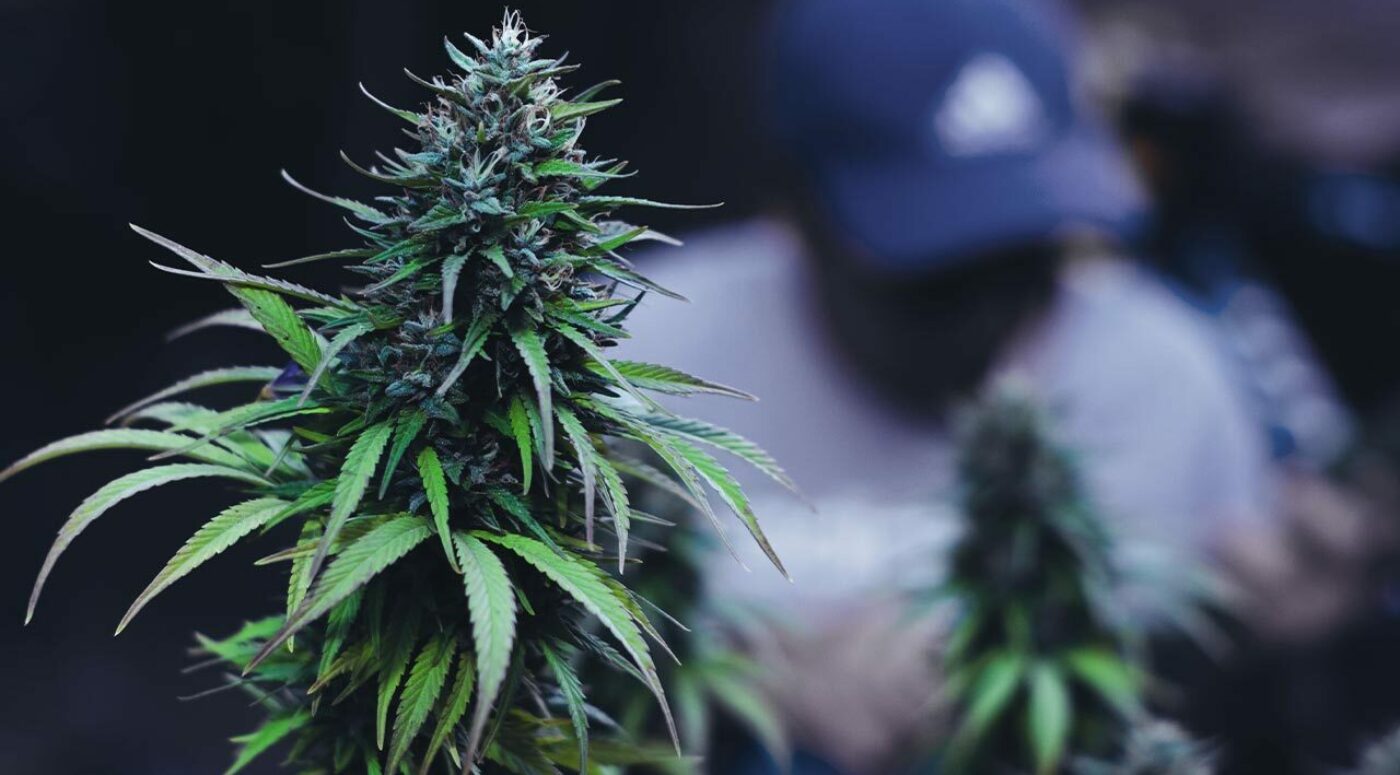

Looking at a charge for the cultivation of cannabis and curious about the maximum sentence? Firstly, know that you are not alone. This concern is very common and with the rise of the use of cannabis for medicinal and recreational reasons, many people find themselves facing these worrying charges. Whatever your situation, make sure that you seek advice from a trusted solicitor as early as possible. While the punishment for this offence can be severe, solicitors can assist in potentially reducing any prison time. This article will cover the basics of the offence, i.e. what constitutes an offence around the cultivation of cannabis, and discuss the maximum possible sentence you might face. We’ll also explore key points from the sentencing guidelines and explain how a solicitor can help mitigate your case and possibly lower your sentence.
What is the offence of cultivation of cannabis?
Cultivation of cannabis in England is an offence under the Misuse of Drugs Act 1971. This legislation categorises cannabis as a Class B drug, making its cultivation a criminal activity. Specifically, Section 6 of the Act prohibits the cultivation of cannabis plants.
To secure a conviction for the cultivation of cannabis, the prosecution must prove the following elements beyond reasonable doubt:
- The defendant was aware that they were cultivating cannabis.
- The defendant took steps to grow the cannabis plants.
- The plants being cultivated were indeed cannabis.
Examples of cultivation of cannabis include:
- Growing cannabis plants in a greenhouse
- Setting up an indoor hydroponic system to grow cannabis
- Planting cannabis seeds in the garden
- Maintaining cannabis plants in a rented property
- Cultivating cannabis on agricultural land without permission
- Using artificial lighting and fertilisers to aid cannabis growth indoors
- Constructing a covert cannabis farm in an unused warehouse
- Growing cannabis plants under the guise of cultivating legal horticultural plants
- Utilising secret rooms or basements to grow cannabis plants
- Collaborating with others to cultivate cannabis in a shared location
What is the maximum sentence for cultivation of cannabis?
The maximum sentence for the offence of cultivation of cannabis in England and Wales is 14 years imprisonment, an unlimited fine, or both. This is outlined under the Misuse of Drugs Act 1971, as cannabis is classified as a Class B drug.
According to the Sentencing Council guidelines, the actual penalty imposed will depend on various factors, including the scale of the cultivation operation, the defendant’s role, and any previous criminal history.
For personal use or small-scale cultivation, the sentence may be considerably lower, whereas larger, commercial operations can attract the maximum penalty. This is because the legal system often differentiates between minor infractions and significant violations based on the intent and scale of the operation. Personal or small-scale growers are typically viewed as having less impact on public safety and the illegal drug market, whereas large-scale operations are considered a major threat due to their potential to distribute significant quantities of cannabis. Additionally, commercial operations often involve more complex criminal activities, such as money laundering and organised crime, which can result in harsher penalties to deter such behaviour and protect the community. The resources and sophistication involved in large-scale cultivation further underscore the serious legal repercussions intended to combat these high-level operations.
What factors influence the sentencing of cultivation of cannabis?
When sentencing for the offence of cultivation of cannabis, a judge will take into account several key factors as outlined by the Sentencing Council and relevant legislation. These factors help ensure that the sentence is proportionate to the offence and considers both aggravating and mitigating circumstances:
- Severity and Scale of Cultivation – The judge will consider the number of plants involved and the scale of the operation. Larger cultivations or those intended for commercial purposes typically warrant harsher sentences compared to smaller, personal-use operations.
- Involvement of Organised Crime – If the cultivation is linked to organised crime groups, this is seen as an aggravating factor. Organised crime involvement often indicates a higher degree of planning and potential harm to the community.
- Role of the Offender – The offender’s role in the operation is crucial. Those considered to have a leading role in the cultivation, such as organisers or those providing the premises, are likely to face stiffer penalties compared to minor or peripheral participants.
- Premises and Equipment – Judges will also examine whether the cultivation involved sophisticated methods or equipment, such as hydroponic systems, grow lights, or alterations to the premises, which indicate a higher level of planning and intent.
- Previous Convictions – The criminal history of the accused plays a significant role. Prior convictions, particularly those related to drug offences, will be viewed as aggravating factors.
- Impact on the Community – The potential harm to the community, including the risk of localised drug distribution, is taken into account. High-impact operations could lead to stiffer penalties to serve as a deterrent.
A judge will also take into account a series of aggravating and mitigating factors.
Aggravating factors include:
- Presence of Weapons: The involvement of weapons during cultivation, whether for protection or intimidation, can significantly increase the severity of the sentence.
- Exploitation of Vulnerable Individuals: If the operation involves exploiting vulnerable individuals, such as minors or those unable to refuse participation, this is considered a serious aggravating factor.
- Environmental Damage: Operations causing environmental harm, such as improper disposal of chemicals or significant alterations to natural landscapes, can lead to harsher penalties.
- Proximity to Schools or Youth Facilities: Cultivations near schools, playgrounds, or other areas frequented by youth can lead to increased sentences due to the potential for higher community harm.
- High Yield Operations: The use of advanced techniques aimed at maximising yield, such as genetically modified strains or enhanced fertilisation methods, can be seen as an aggravating factor.
- Financial Gain: Significant financial gain from the operation, evidenced by large amounts of cash, assets, or extravagant lifestyles, will attract more severe penalties.
Mitigating factors include:
- Personal Use: If the cultivation is primarily for personal use rather than distribution, this can lead to a more lenient sentence.
- Cooperation with Authorities: Offenders who cooperate with law enforcement, such as providing information on larger operations or criminal networks, may receive reduced sentences.
- First-time Offender: Individuals with no prior criminal record, especially those with no history of drug-related offences, may receive a more lenient sentence.
- Mental Health Issues: The presence of mental health issues that contributed to the offence can be considered in mitigation, potentially leading to treatment options rather than imprisonment.
- Dependent Family Members: Offenders who are primary caregivers or have dependent family members may receive some leniency to minimise the impact on innocent parties.
- Evidence of Rehabilitation: Demonstrated efforts towards rehabilitation, such as engagement in drug treatment programs or other positive community contributions, can mitigate the severity of the sentence.
- Remorse and Acceptance of Responsibility: Genuine remorse and acceptance of responsibility for the offence can lead to a more favourable sentence.
How can a solicitor help with reducing the sentence for cultivation of cannabis?
When faced with charges of cultivation of cannabis, the importance of securing a skilled criminal defence solicitor cannot be overstated. A solicitor plays a crucial role in navigating the legal system, providing expert advice, and potentially reducing the severity of the sentence. Here’s how a solicitor can help and what you should consider when selecting one:
- Expert Legal Knowledge: A solicitor who specialises in criminal law will have an in-depth understanding of the legal framework surrounding cultivation of cannabis. They can analyse the specifics of your case, identify potential defences, and advise on the best possible course of action.
- Mitigation: An experienced solicitor can craft a compelling case for mitigation, presenting factors that might persuade the court to impose a lesser sentence. This could include personal circumstances, lack of previous convictions, and cooperation with authorities.
- Negotiation Skills: Solicitors are skilled negotiators who can engage with prosecutors to potentially reduce the charges or agree on a more favourable plea deal.
- Court Representation: Having a solicitor to represent you in court is invaluable. They ensure that your rights are protected, procedures are correctly followed, and arguments are presented effectively.
When choosing a solicitor, look for:
- Experience and Specialisation: Seek out solicitors with substantial experience in criminal defence, particularly those who have dealt with cultivation of cannabis cases. Check their track record and client testimonials to gauge their competence.
- Reputation: A solicitor’s reputation within the legal community can be a good indicator of their abilities. Look for someone well-regarded by peers and the judiciary.
- Communication Skills: Choose a solicitor who communicates clearly and promptly, ensuring you understand the complexities of your case and are kept informed throughout the process.
Where to get more help
Concerns about what sentence you might receive for the cultivation of cannabis can be overwhelming, and you undoubtedly have several important questions on your mind. For more help and guidance on sentencing and other matters related to the offence of cultivation of cannabis, get in touch with the team at Stuart Miller Solicitors today.
OUR COMMITMENTS TO YOU:
-
Responsive
A legal expert will consult you within 24 hours of making an enquiry.
-
Empathetic
We will always treat you with trust, understanding and respect.
-
Specialised
Your case will be handled by an expert who specialises in your type of offence.
-
Proactive
We will take early action to end proceedings as soon as it is practically and legally possible to do so.
-
Engaged
You will be kept updated on your case at all times. We will provide a named contact available to answer your questions.
-
Caring
We understand this is a difficult and stressful time for you and your family. Our team will support you every step of the way.
-
Tenacious
We will never give up on your case. We fight tirelessly to get you the best possible outcome.

